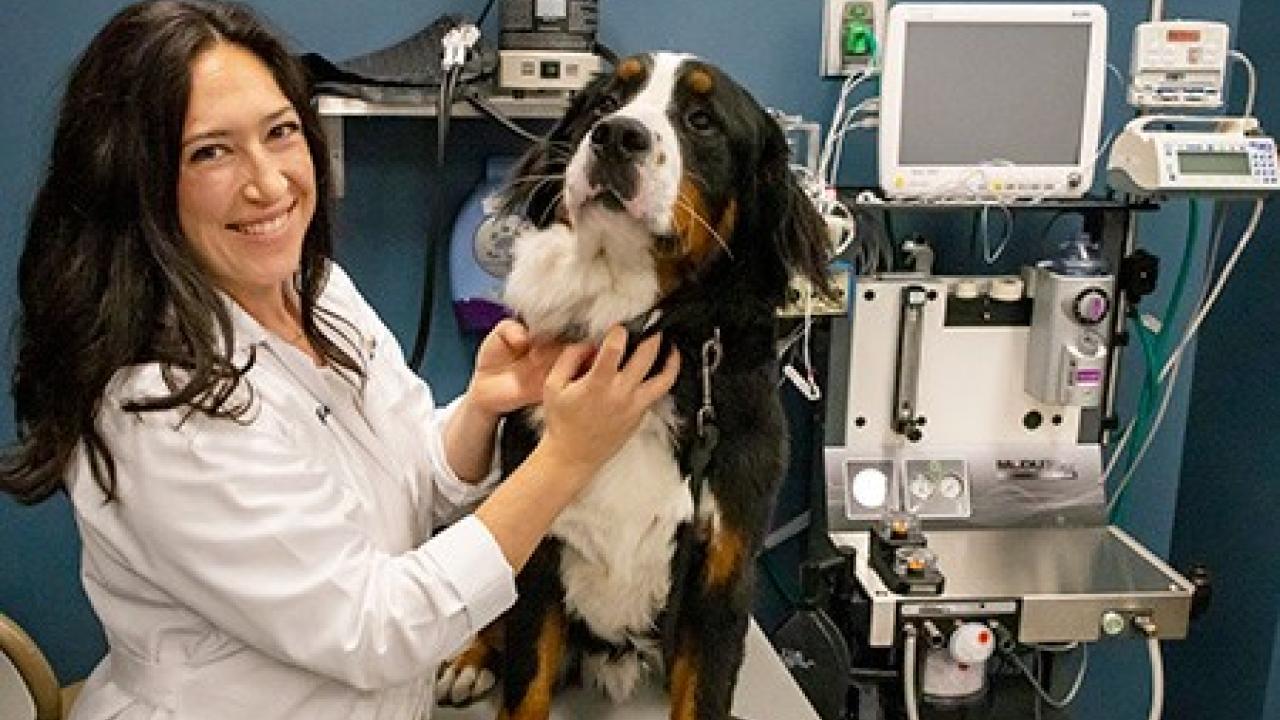
Dogs Get Head and Neck Cancers, Too
When Sarah Lindley found a lump near her dog Bucky’s tooth, she didn’t think it was a problem. The lively husky mix, which she and her partner, Tom Yuzvinsky, consider part of the family, didn’t appear to be in pain. Still, she scheduled an appointment with her local veterinarian on the Central Coast.
“At first we thought something was stuck in his gums and he might lose a tooth,” Lindley said. “Then the biopsy came back as cancerous.”
To get treatment for Bucky as quickly as possible, the couple turned to the UC Davis School of Veterinary Medicine. He was diagnosed with squamous cell carcinoma, the second-most common oral cancer in dogs, according to Stephanie Goldschmidt, an assistant professor caring for companion pets at the veterinary school’s Veterinary Medical Teaching Hospital.
Before removing Bucky’s cancerous tumor surgically, Goldschmidt asked to enroll him in a clinical trial funded by UC Davis Comprehensive Cancer Center. Cancer in dogs is similar to cancer in people. Bucky and other dogs are helping scientists advance cancer cell detection, with the potential to improve oral surgery outcomes for canines and their human companions.
